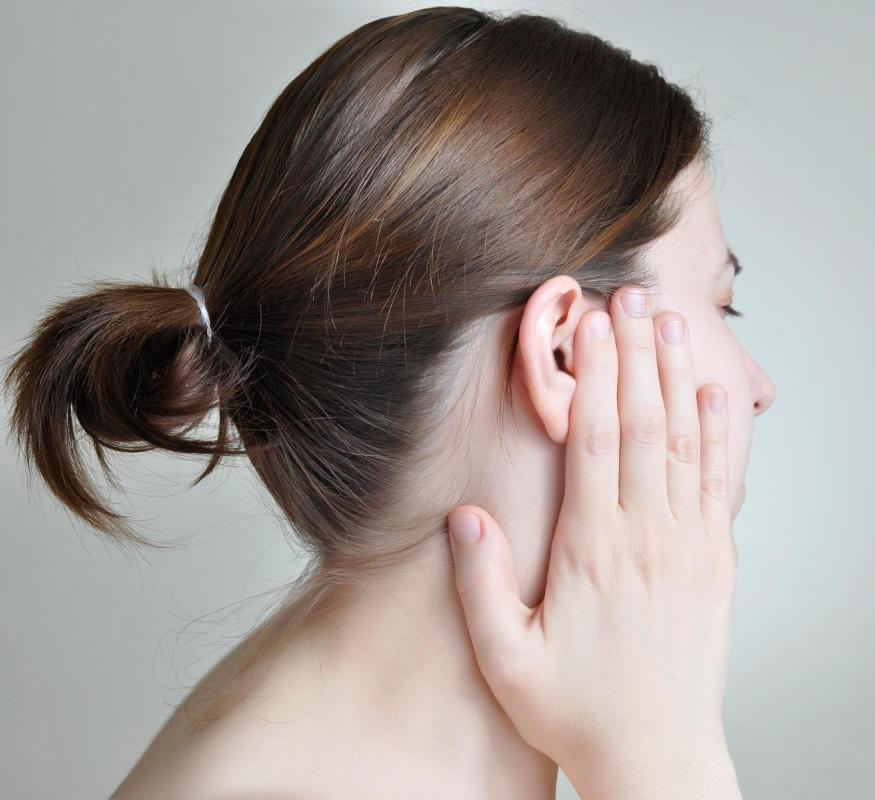At WiseGEEK, we're committed to delivering accurate, trustworthy information. Our expert-authored content is rigorously fact-checked and sourced from credible authorities. Discover how we uphold the highest standards in providing you with reliable knowledge.
What is Perilymph?
Perilymph is a fluid found inside the cochlea of the ear. It is a form of extracellular fluid, meaning that it is found outside cells of the body rather than inside of them. This fluid plays a role in hearing, and when it is disrupted, it can lead to hearing problems. People who develop hearing problems usually need to visit an ear, nose, and throat physician or a hearing specialist to determine why and find out whether or not the problem can be addressed.
The cochlea is a structure which is shaped much like a snail shell. Two compartments within the cochlea, the scala tympani and the scala vestibuli, are filled with perilymph. When vibrations hit the cochlea, they cause the perilymph to move, stimulating the auditory hair cells inside the ear. The vibration is translated into electrochemical impulses which can travel to the brain, allowing people to interpret the vibrations as sound.

The chemical composition of perilymph is similar to that of blood plasma. It is high in sodium, which is what allows it to interact with the hair cells inside the ear to turn movement into an impulse which can be read by the brain. Within the scala media in the middle of the cochlea, there is also extracellular fluid, known as endolymph. Endolymph is very high in potassium, with almost no sodium at all, and as a result it behaves differently within the ear.

One problem which can arise with ear perilymph is a perilymph fistula. A fistula is any abnormal opening in the body. In this case, it is an opening which allows peripyhmph from the inner ear to drain out into the middle ear. This can result in symptoms like dizziness, nausea, vomiting, ringing ears, a sense of fullness or heaviness in the ear, difficulty balancing, and vertigo. Perilymph fistulas may be caused by trauma as well as underlying disease processes.

When such a fistula is identified, there are a number of treatment options. Sometimes a doctor will recommend taking a wait and see approach to the situation, and seeing if the ear resolves the problem on its own. In other case, surgery may be recommended to close the hole. It is also important to determine why the fistula happened, as there may be additional steps which need to be taken to address the disease, infection, or other problem which led to the fistula's development.
AS FEATURED ON:
AS FEATURED ON:














Discussion Comments
The hair cells are located in the basilar membrane and are surrounded by endolymph, not perilymph. The traveling wave in the perilymph of the scala vestibuli displaces the endolymph in the scala media. The wave causes the tectorial membrane to stimulate the cilia of the hair cells. The high potassium in the endolymph acts as a depolarizing agent for the hair cells.
Post your comments